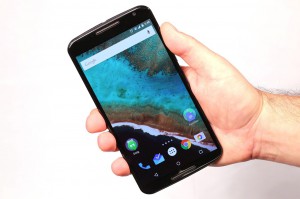Google says Fi is not intended to disrupt wireless carriers. No one believes it.
Google has just launched Google Fi a wireless service that switches between a carrier network and WiFi depending on signal strength. The launch Google says is not intended to disrupt phone carriers. Which maybe true it is only being rolled out on the Nexus 6 device for now. Yet if this launch is successful it will be easy to see how this can set Google up to enter the carrier market. Priced at $20 a month with a charge of $10 per gb used this would be one of the best priced carrier services especially when you consider the refunds that a consumer would get for unused Data.
As google is already a major player in the phone industry with Android, is this the next major step?
Look out Verizon and AT&T– there’s a new kid in town.
For years, there have been rumors of a brand new wireless carrier jumping into the ring currently occupied by the “Big 4” (Verizon, AT&T, T-Mobile and Sprint) in the United States–and according to this post by The Wall Street Journal, Google will finally confirm that it’s throwing its hat into the ring as early as tomorrow. According to the article, Google has “teamed up” with Sprint and T-Mobile to give its Nexus 6 users (initially) the choice of using Google as their carrier, rather than one of the “Big 4.” By doing so, Google will only charge customers for the data they use per month, as the average American leaves around $28 of unused data on the table each month in the current environment. I think this is a great move for Google, and gives customers more choice when choosing a wireless carrier that offers the most value for them. Because of the Nexus 6’s hardware, it can switch between the T-Mobile GSM network and the Sprint CDMA network (and both carrier’s 4G LTE networks) to give users the best coverage possible wherever they go. I think the key takeaway is that Google is trying to make data connectivity and Internet access more efficient, cheaper, and more accessible to more people–and that’s a good thing. While I think it’s obvious that Verizon and AT&T are the target for this initiative and will probably be disrupted, I also think cable providers like CenturyLink, Verizon FiOS and Time Warner Cable will also be affected. If mobile data continues to get cheaper and cheaper, people may rely less on their home-based internet connections to connect to the web, or they may drop cable TV completely in order to stream on the go with their cell-tower-connected devices. Are there other industries that might be disrupted? Would you switch to Google if you had a Nexus 6–or if they eventually made the service available to iPhones and other non-Nexus 6 devices?
Project Ara – The Next Disruptive Innovation for Smartphones?

Project Ara’s next prototype will stand equal to a top-tier smartphone
Project Ara: Part of it (YouTube video)
The smartphone market is filled with innovation; companies are always trying to outdo themselves in order to create a superior, albeit expensive, smartphone. Google, on the other hand, is looking to alter the current cycle with Project Ara. The goal is to create a modular phone. Rather than having to constantly buy new phones, you just simply upgrade certain parts to your phone. Want a faster processor? Then buy a faster one to put in your phone. Want a longer-lasting battery? Then buy a bigger battery to put in your phone. You have complete control over how you want your phone to be. In a smartphone market where people are very picky about what they want to have in a phone, Project Ara can potentially be a game-changer.
If Project Ara is a success, then I think it would be an example of a Low-End Disruption. Although there is no idea as to what the price of the phone and individual pieces would be, I think that the fact that you only have to buy the phone once will save you money over time. Also, since this phone is being developed by Google, it’s possible that the phone would be carrier-free, which is a popular option for the low-end market. It may take a little while for this to catch on, but I’m very excited by the prospects of a modular phone.
What do you guys think about this? Do you think Project Ara has the potential to be a disruptive innovation? If not, then what might Google be able to do with this project in order to make it so? And besides for Project Ara, can you think of any other future phone technologies that could be a disruptive innovation?




